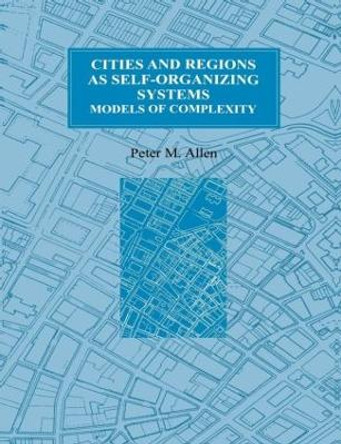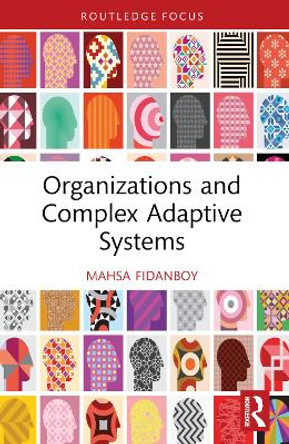Description
About the Author
Craig Piers, Ph.D. is a psychotherapist and clinical supervisor in the health center at Williams College and former associate director of admissions and senior staff psychologist at the Austen Riggs Center. Dr. Piers is a contributing editor of Psychoanalytic Dialogues and also serves as a reviewer for several other professional journals. John P. Muller, Ph.D. is director of training at the Austen Riggs Center. Dr. Muller is the author of numerous books, including most recently Beyond the Psychoanalytic Dyad: Developmental Semiotics in Freud, Peirce, and Lacan (Routledge, 1996). Joseph Brent, Ph.D. is a historian of ideas. He is currently president of the Semiotic Society of America and of the Charles S. Peirce Society. Dr. Brent is the author of the only full-length biography of Peirce, of which he published a revised edition in 1993.
Reviews
The scholars in this volume succeed in explaining a wide range of psychological and treatment phenomena with only a small number of basic and fascinating principles. Dichotomies such as "nature versus nurture" and "free will versus determinism" have become false dichotomies now that the processes of emergence are better understood. -- Stephen J. Guastello, Ph.D., Marquette University, editor-in-chief, Nonlinear Dynamics in Human Behavior editor-in-chief, Nonlinear Dynamics, Psychology, and the Life Sciences
Non-linear systems theorists have been attempting to describe biological evolution and have themselves gone through several generations of evolution. Theoreticians in this genre have pursued the elusive goal of making sense out of natural phenomena so complex that they defy linear description or explanation. This volume of papers gives a wide ranging, comprehensive and vastly interesting overview of the thinking of the present generation. The authors are leaders in the field, and they tackle the philosophical, mathematical, developmental, biological and psychological aspects of complex systems. This book will be a necessary text for anyone seriously interested in this domain. -- David D. Olds, M.D., Columbia University College of Physicians and Surgeons; co-editor-in-chief, Neuropsychoanalysis
This collection of essays, drawing on powerful new readings of complexity theory, offers fascinating and useful innovations in psychoanalytic and psychological thinking. In considering the intricacy of the psychotherapy dyad, the dynamics of character, the potential for change and stability, and the problematic of individual development, we see the power of an elegant and nuanced theory which privileges pattern and unpredictable emergence. The goals of this book are revolutionary, yet couched in careful and measured terms. We are being introduced to a new parent discipline. The authors of these essays consider complexity theory to be the 21st-century replacement for thermodynamics and for information theory as the guiding instrument of theory building.Emanating from the new perspective of nonlinear dynamic systems, the authors find wondrous possibilities in brain science, in psychology, in personality theory, in philosophy and semiotics. It is my hope that readers will do the heavy lifting this bookrequires to find revealed a model of human behavior that integrates body and mind, psyche and culture, person and interpersonal field, personal subjectivity and environment. Finally, this book illuminates a theoretical apparatus sufficient to the complex -- Adrienne Harris Ph.D., New York University
I have seen little other writing that relates the field of complexity, chaos, and nonlinear dynamics to psychology; for that reason alone, Self-Organizing Complexity in Psychological Systems deserves attention....this book begs for "study groups" who will devote their own intersubjective discussion to fleshing out this rich material. * PsycCRITIQUES *
The world's inability to deal effectively with the plethora of potentially catastrophic problems facing it such as global warming, environmental collapse, famine, drought, maldistribution of wealth, proliferation of weapons of mass destruction, religious fundamentalism, all stems from the deeply non-rational nature of the human psyche. Psychoanalysis has been the only discipline that has attempted a holistic theory of the mind that takes into account its non-rational nature. Unfortunately, psychoanalysis was founded upon a misapplication of reductionist physical science and so failed to live up to its full potential. The contributors to this volume seek to provide a complete re-envisioning of psychoanalysis based upon the new sciences of complexity, grounding the field in the ideas of emergence, agency, morphogenesis and giving us a psychoanalysis for the twenty-first century. -- William Sulis M.D, McMaster University, co-editor, Nonlinear Dynamics in Human Behavior
This collection of essays, drawing on powerful new readings of complexity theory, offers fascinating and useful innovations in psychoanalytic and psychological thinking. In considering the intricacy of the psychotherapy dyad, the dynamics of character, the potential for change and stability, and the problematic of individual development, we see the power of an elegant and nuanced theory which privileges pattern and unpredictable emergence. The goals of this book are revolutionary, yet couched in careful and measured terms. We are being introduced to a new parent discipline. The authors of these essays consider complexity theory to be the 21st-century replacement for thermodynamics and for information theory as the guiding instrument of theory building. Emanating from the new perspective of nonlinear dynamic systems, the authors find wondrous possibilities in brain science, in psychology, in personality theory, in philosophy and semiotics. It is my hope that readers will do the heavy lifting this book requires to find revealed a model of human behavior that integrates body and mind, psyche and culture, person and interpersonal field, personal subjectivity and environment. Finally, this book illuminates a theoretical apparatus sufficient to the complexity that clinicians live with. A glossary at the end and lots of definitions within each essay makes the book suitable for an introduction to complexity theory. -- Adrienne Harris Ph.D., New York University
Book Information
ISBN 9780765705259
Author Craig Piers
Format Hardback
Page Count 192
Imprint Jason Aronson Publishers
Publisher Jason Aronson Publishers
Weight(grams) 404g
Dimensions(mm) 230mm * 158mm * 20mm









